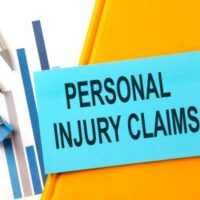The Role of Expert Witnesses in Georgia Auto Accident Cases

When sorting out liability for an auto accident in Georgia, you typically do not require testimony from expert witnesses. After all, if someone runs a red light and plows into another vehicle in front of a dozen witnesses, it does not take an engineer to explain to a jury what happened. That said, there are some more complex accident cases–such as those involving more than two vehicles or commercial trucks–where expert testimony can help a victim establish and explain critical facts to a jury.
In general, a trial court must determine whether or not a proposed expert witness is competent to testify in a personal injury case. This is done by applying what is known as the Daubert test, which is named for a 1993 U.S. Supreme Court decision. Essentially, the Daubert test requires the trial court to determine (1) if the expert’s testimony is relevant to the case, (2) the expert is properly qualified on the subject of their testimony, and (3) the expert’s testimony is based on reliable principles and methods.
Georgia Supreme Court: Police Investigators Subject to Same Rules as Other Expert Witnesses
The Georgia Supreme Court recently examined whether or not the Daubert test applied to police officers who investigate accidents and later testify as expert witnesses in civil personal injury trials. The case before the court, Miller v. Golden Peanut Company, LLC, involved a fatal tractor-trailer accident that took place in September 2017.
The tractor-trailer in question picked up a load of green peanuts from a farm in Thomas County, Georgia, for transport to a drying facility. The truck driver made a left turn onto the northbound lane of a two-lane road. At the same time, the victim was traveling southbound on the same road and collided with the side of the trailer. She died as a result of her injuries.
The victim’s widower subsequently filed a wrongful death lawsuit against the company that owned the peanut truck, the driver, and the peanut farm. Before the trial court, the plaintiff asked the judge to exclude part of the proposed expert testimony from a sergeant assigned to investigate the accident for the Georgia State Patrol’s Specialized Collision Reconstruction Team. The sergeant’s report stated, “It is the opinion of this investigating officer that [the victim] was distracted by something and failed to slow her vehicle down to allow for the trailer to clear her travel lane before the collision.”
The trial judge refused to exclude the testimony, holding that the sergeant’s testimony was not subject to the Daubert rules. The Supreme Court disagreed. It held that since the sergeant’s testimony was based on the application of “technical or other specialized knowledge” and not just his observations, he should be held to the same standard as any other expert witness. The Court therefore directed the trial judge to conduct the necessary Daubert hearing.
Contact the Personal Injury Trial Attorneys at Hawkins Spizman Today
Personal injury cases often turn on these kinds of evidentiary rulings. That is why it is crucial to work with an experienced Fulton County personal injury lawyer who can guide you through each stage of the litigation process. Contact Hawkins Spizman today to schedule a free consultation with a member of our team. We serve clients throughout Georgia including Atlanta, Dunwoody, Alpharetta, Cobb County, Fulton County, Gwinnett County, Johns Creek and Sandy Springs.
Source:
scholar.google.com/scholar_case?case=8843812866352985001
